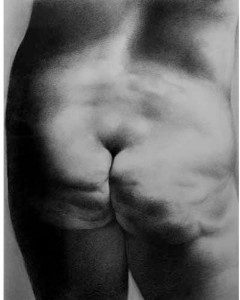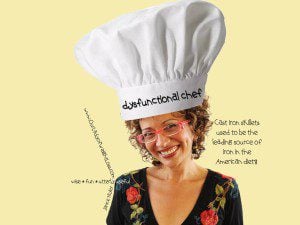An Interview with Pamela Shields, Artist
NAKED: The Masturbation Series

Pamela Shields, artist, is presenting, for the first time, her ‘Masturbation Series’ of large drawings. Frank discussion or depiction of a woman as a sexual being, rather than as a sexual object, is still taboo. Shields breaks down this taboo by presenting women’s sexuality as a beautiful thing – a natural part of being a healthy, whole, independent woman. Her monumental bodies challenge the viewer to examine the expression of their own sexuality, to question what is ‘acceptable’, what is ‘normal’.
Here, Janice Taylor interviews the artist about her sexuality, her body, her nakedness…
How long have you been naked?
I started to draw my own naked body about 30 years ago, simply out of necessity. I didn’t have access to an art school and I couldn’t afford to hire a life model, so I used myself. I found that it gave an edge to the drawings and brought an immediacy and urgency to the drawing process. This was especially true in the beginning, when I had my studio in my garage and started doing naked self-portraits using mirrors. While the garage door didn’t have an automatic door opener, the fact that traffic was whizzing by on the other side of the door served to remind me of the potential for danger in the artistic endeavor.
Are you ever really naked?
No. There are always layers of yourself to be exposed – layers you are totally unaware of. Always mysteries, always discoveries to be made – hidden treasures to be found.
What about your art is shocking? Or is it NOT shocking?
I have a bumper sticker on my car that reads ‘Fear No Art’. I truly believe this. I have found that the people who are shocked by my art are the people who do not accept that women have a right to enjoy their own sexuality. If you believe that it is OK for women to be sexual beings, not objects, then you will not be shocked.
What people do find surprising is that I made the art. I am not flamboyant in appearance or nature. I am the lady you see at the check-out line in the grocery store. I live in a conservative suburban community. People would never suspect the erotic nature of the art I make, which is kind of a kick for me. I enjoy the anonymity of my secret existence. I use my real name for my ‘PG’ art and a pseudonym for my drawings exploring female sexuality to protect the professional careers of family members.
How did you find the courage to get naked in your garage? Or was it no big deal?
As I said, it was out of necessity and I did make sure the doors were locked. My main focus was to cover new ground. For me this was a means to an end, while at the same time allowing me to push the envelope. What really took courage was showing the art to other people. Reactions were mixed. Some thought the whole idea of portraying female masturbation in a beautiful way was empowering and long overdue. Others thought it was disgusting.
What’s it like to look at your naked self over a long period of time?
I’ve been all different shapes & sizes over the years and I’ve always had weight issues. At age 63, I am at my leanest and strongest. Even though I can see the aging process at work when I look in the mirror, I feel good about myself as a person and as an artist. So, it doesn’t bother me to see sagging breasts and folds of skin. I ‘feel’ strong. Instead of looking at my body and seeing a steady decline, I see maturation and strength.
You say that you’ve “always had weight issues.” Always; as a child?
I have NEVER had a good ‘body’ self-image. Overweight as a child, I was teased, called ‘chubby’ and felt like I didn’t fit in. As a teen, I truly believed that I would never have a date or be kissed, let alone get married. I really, really believed this. This is a scary fact.
Yes, scary and painful.
I think as a way to cope (both as a child and as an adult), I buried the hurt down deep and shut down the feelings I had about my body to protect myself from the pain.
Since I never felt ‘attractive’, when I looked in the mirror, I wasn’t surprised or upset – this was what I expected to see. I’m guessing other people at one point in time considered themselves attractive and then gained weight and were upset by the change. I never really changed my perception of my body.
I understand that your Masturbation series is about challenging the viewer to examine the expression of their own sexuality. On another level, perhaps a more personal deeper level, what are you using your naked body for?
When I started doing naked self-portraits, I think it was a visual shout to say ‘I exist’. The fact that I used my naked body to shout with was not an intellectual decision. It just happened – maybe my psyche knew this was what I needed to do (one of the truly great things about art). I see it as an emancipation proclamation of sorts. I think the masturbation series was a visceral response to living a life where the intellectual usually trumped the sensual.
You’re looking pretty svelte now. Has losing weight changed your perception of your body, of yourself?
Since I’ve lost weight and kept it off I feel much better about my appearance, but I still don’t wear make-up, jewelry or stylish clothes. This makes me think I perceive my body as more attractive but there must still be a part of me that feels like the ugly duckling.”
That’s the way I see it – I’m sure a psychiatrist could give insight and say it better – I am figuring I’m not alone in this experience, given cultural attitudes toward women.
For full viewing of Pamela Shield’s exhibit visit www.ceresgallery.org
February 4 through March 1.
Hungry for more courageous women? Join Our Lady of Weight Loss’s KITT Club/FB !
Spread the word–NOT the icing,
Janice Taylor, Life & Happiness Coach, Author, Artist, Positarian
wise * fun * utterly useful
———————————————————————————-
For the best life, wellness and weight loss wisdom, visit Janice:
Our Lady of Weight Loss
sign up for the Kick in the Tush Club e-newsletter

